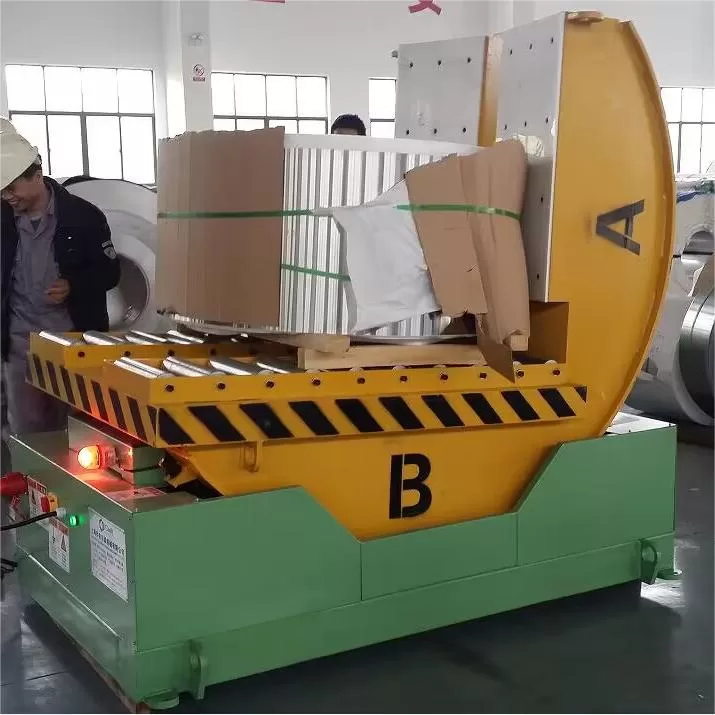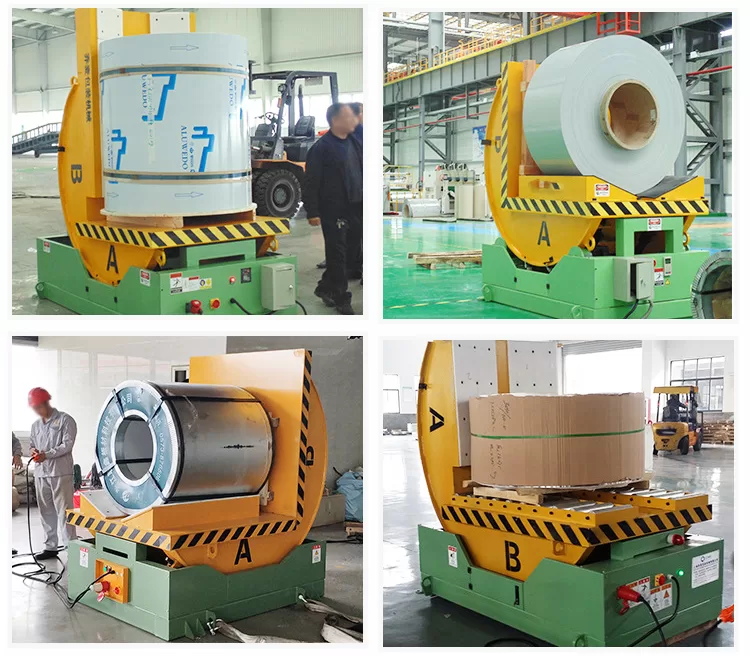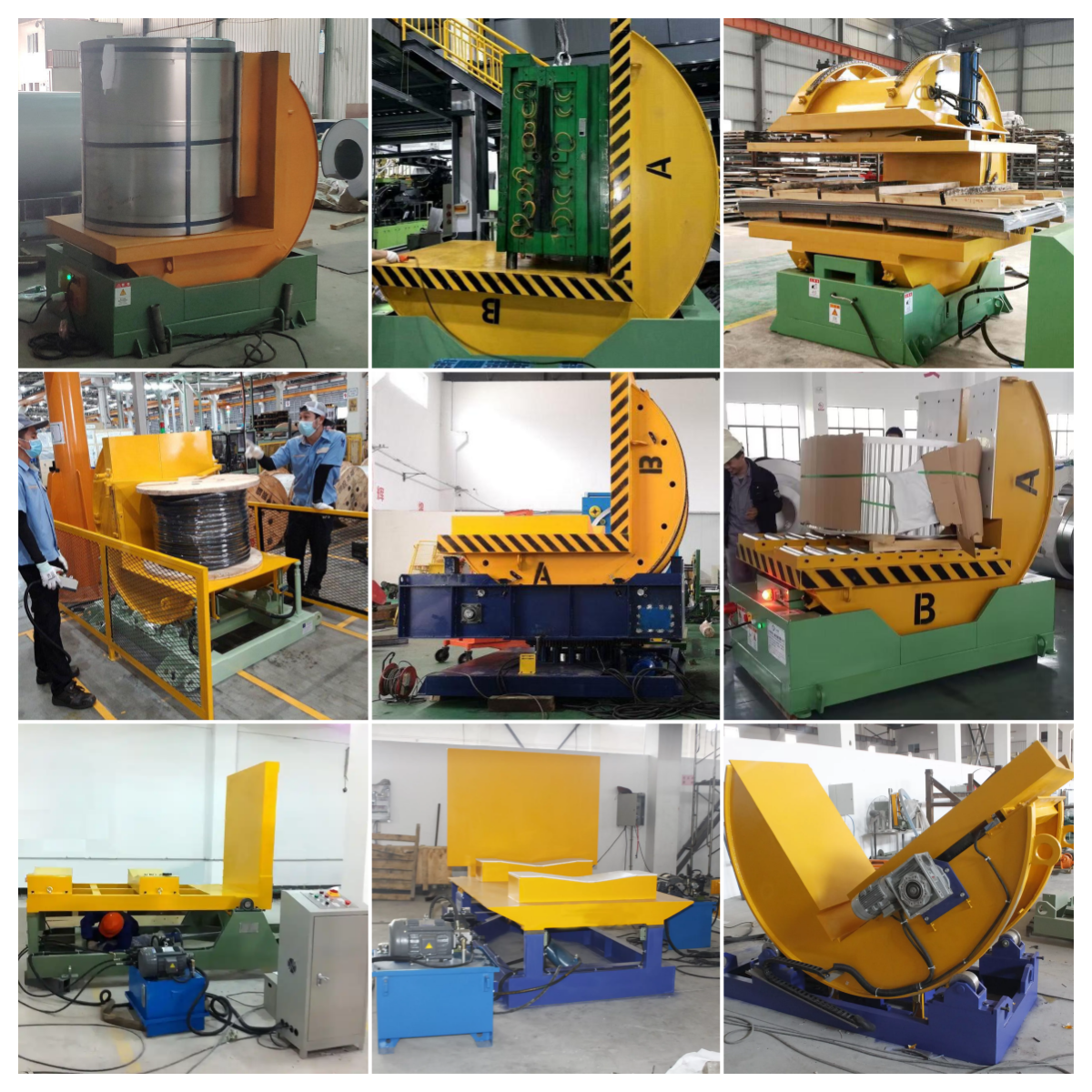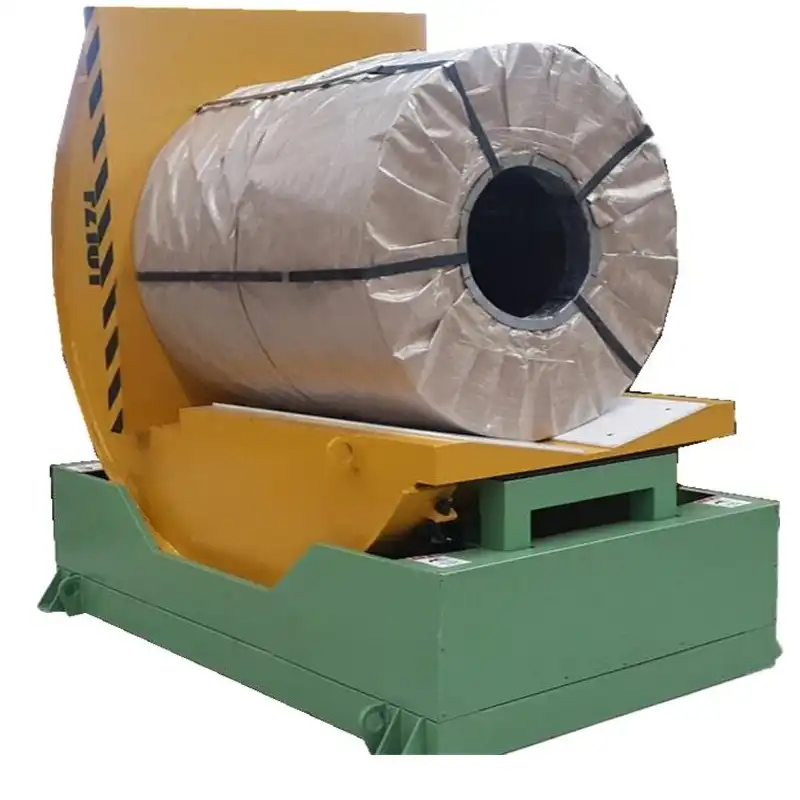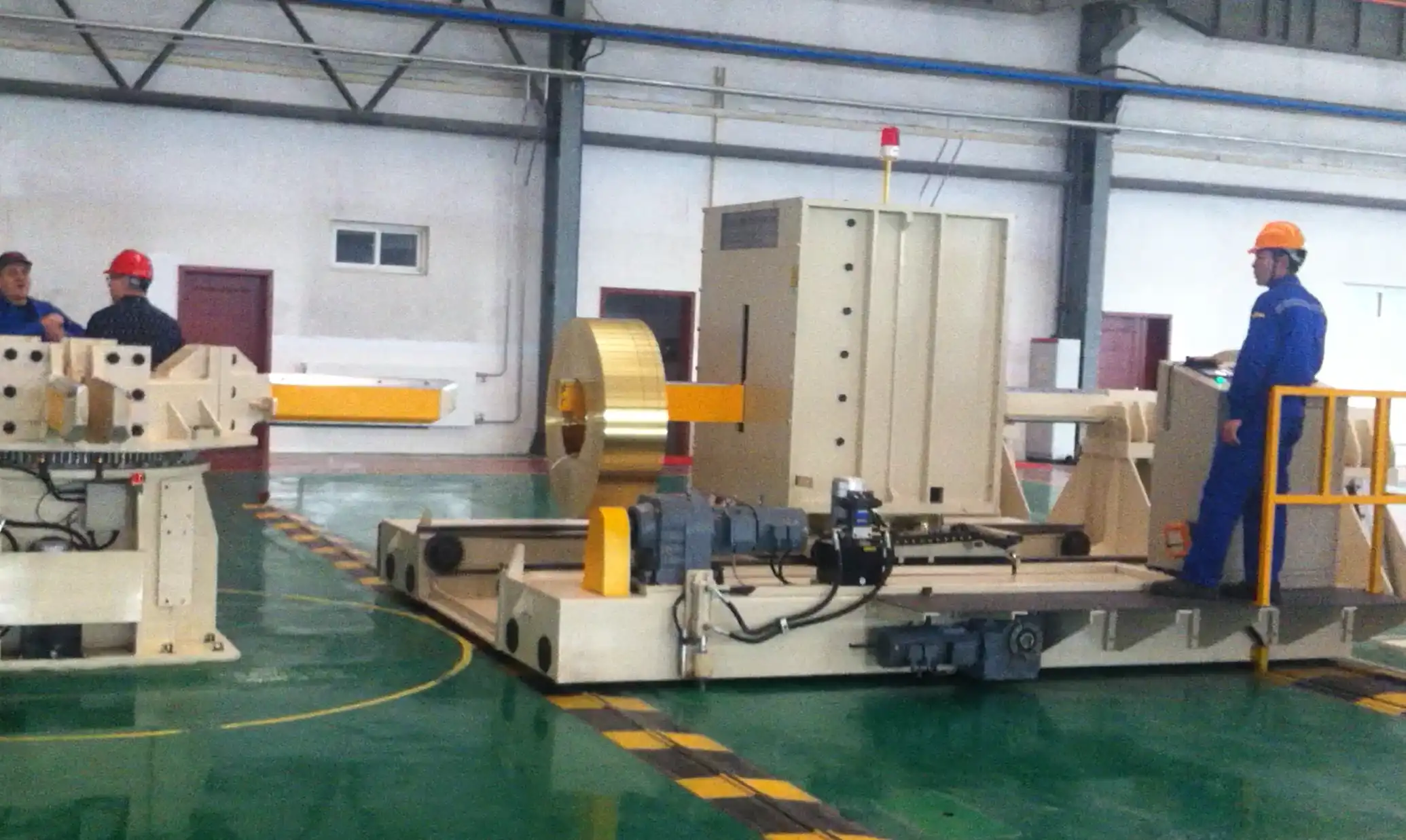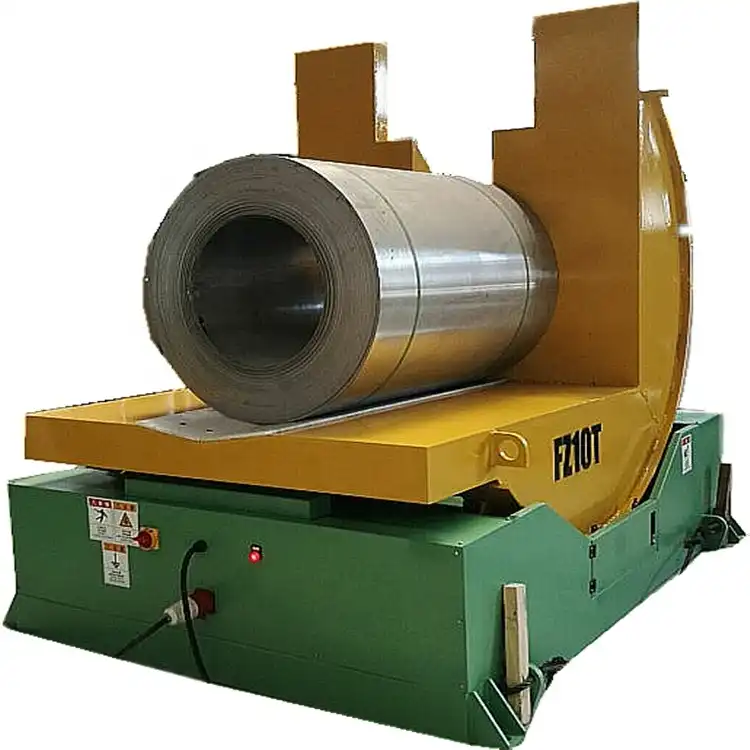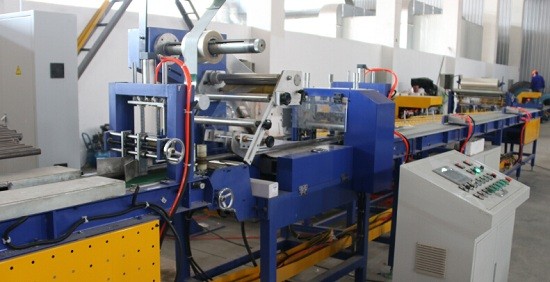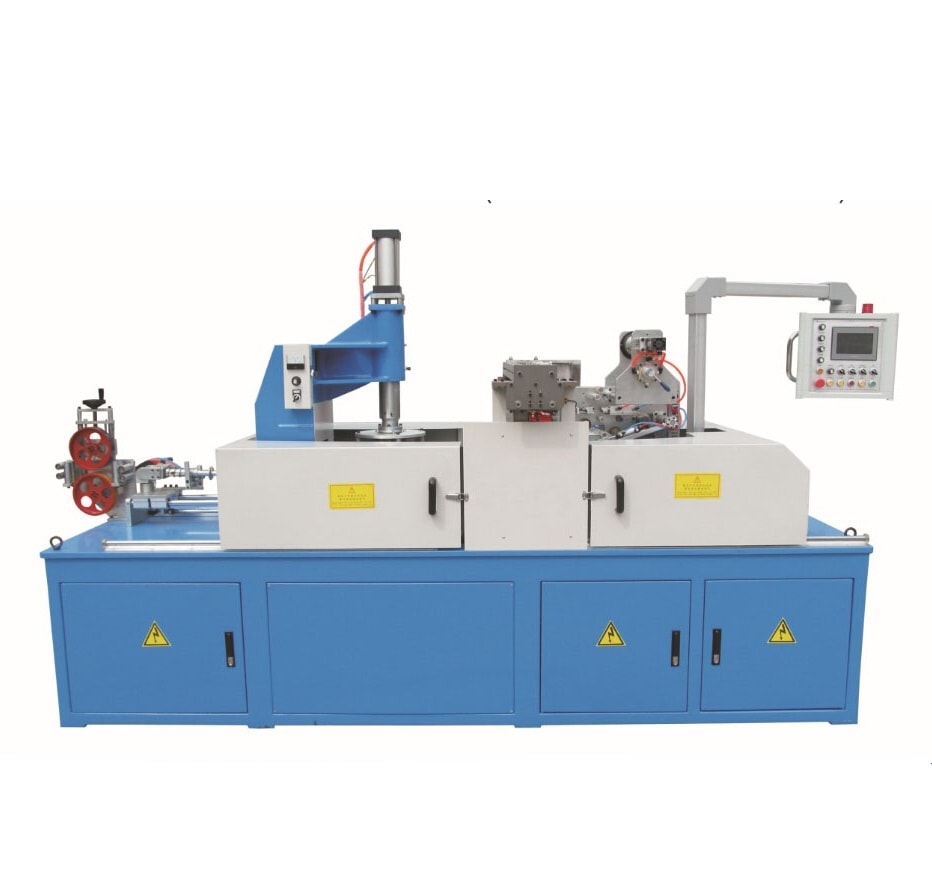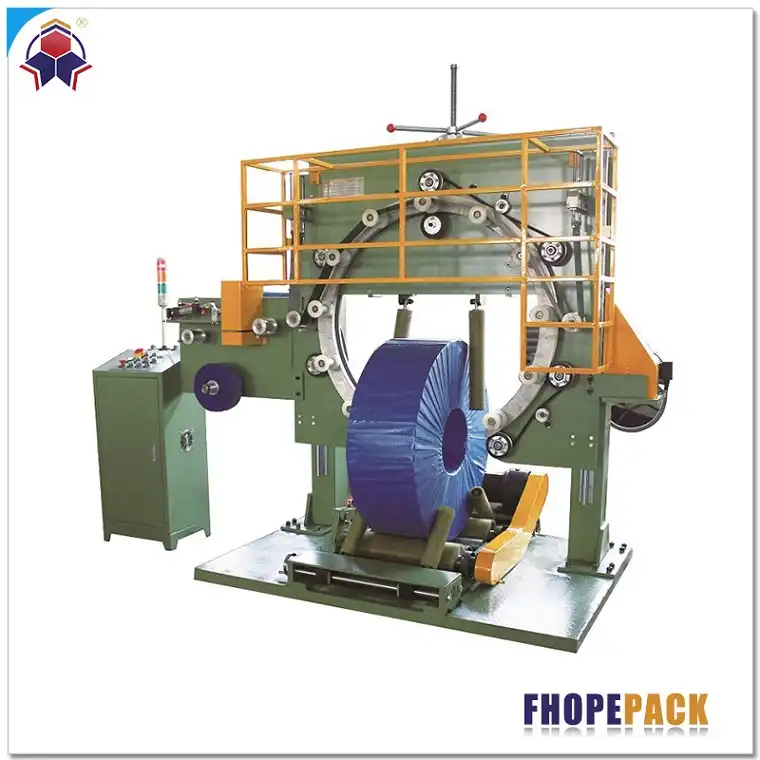Steel Coil Tipper
Steel coil tipping is often overlooked, but it plays a pivotal role in ensuring safe and efficient handling in industries relying on heavy-duty equipment. The process itself is intricate, involving advanced technology and engineering solutions tailored to meet unique production demands. Steel coil tippers are more than just tools—they are game-changers for businesses seeking operational efficiency.
Tipping a steel coil might sound simple, but for anyone managing high-capacity operations, it’s a delicate balance of safety, precision, and productivity. Whether you're an operations manager or a business owner, understanding how these machines work and their impact on your bottom line is essential.
When I first encountered a steel coil tipper, I underestimated its significance. But after seeing how it streamlined processes in real-world applications, I realized its transformative potential. In this article, I’ll explore everything you need to know about steel coil tippers, focusing on their functionality, advantages, and how to choose the right one for your operation.
[claim] Steel coil tippers are indispensable tools for industries aiming to optimize material handling, reduce risks, and enhance productivity.
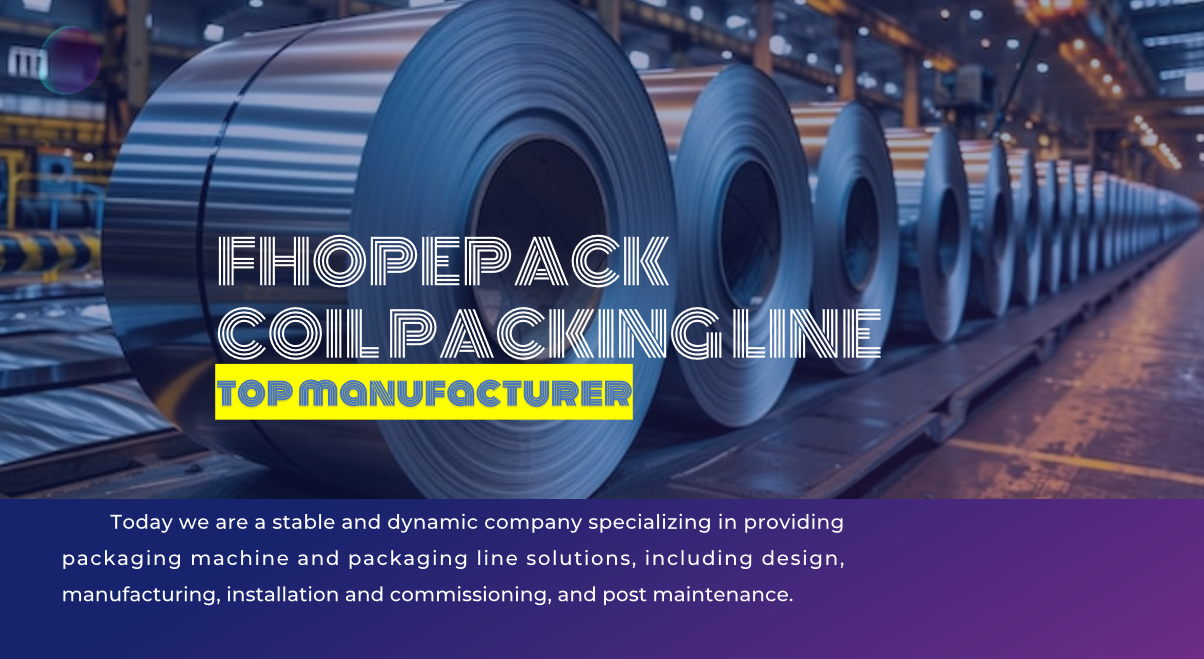
Parameters:
|
Machine
|
FPCT-02
|
FPCT-05
|
FPCT-10
|
FPCT-20
|
FPCT-30
|
FPCT-50
|
Power Supply
(V/Hz)
|
Per requirement
|
Power
(Kw)
|
1.5
|
1.5
|
3.2
|
4.5
|
6.5
|
11.5
|
Max. Loading
(T)
|
2
|
5
|
10
|
20
|
30
|
50
|
Table size
(mm)
|
Per Coil size
|
Speed
(sec)
|
50-70
|
50-80
|
60-90
|
60-90
|
60-90
|
60-100
|
Machine Weight
(T)
|
2.0
|
2.5
|
3.0
|
3.5
|
4.0
|
4.5
|
Machine size
(mm)
|
Designed Per Load size
|
|
Warrantee
|
2 years
|
1. What Makes Steel Coil Tippers Essential for Material Handling?
Efficient Material Handling Solutions
Steel coil tippers are designed to rotate heavy steel coils safely and efficiently. This is critical in industries such as steel manufacturing, automotive, and construction, where coils weighing several tons are a standard part of daily operations. By automating the tipping process, these machines reduce the reliance on manual labor, ensuring consistent performance and minimizing errors.
Cost Savings Through Automation
Automated steel coil tippers save companies money in the long run by reducing labor costs and operational downtime. According to industry reports, businesses can achieve up to a 20% reduction in material handling costs within the first year of implementation.
|
Benefits of Steel Coil Tippers
|
Impact
|
|
Enhanced safety
|
Fewer workplace injuries
|
|
Reduced labor costs
|
Lower operational expenses
|
|
Increased precision
|
Higher product quality
|
Versatility in Design
Steel coil tippers come in various designs tailored to specific operational needs. From horizontal models for compact spaces to vertical options for large-scale operations, there’s a tipper for every requirement. Selecting the right configuration ensures maximum efficiency and operational alignment.
Ensuring Long-Term Reliability
Investing in a durable and well-engineered tipper can significantly reduce maintenance costs over time. Machines equipped with high-quality hydraulic systems and anti-wear components typically last longer and perform better under heavy loads.
Two Fact Statement
-
True: Steel coil tippers can handle weights exceeding 30 tons, making them ideal for large-scale manufacturing.
-
False: Steel coil tippers operate solely on electric motors, making hydraulic systems unnecessary.
2. How Do Steel Coil Tippers Enhance Workplace Safety?
Prioritizing Safety in Material Handling
Handling steel coils manually or with outdated equipment increases the likelihood of workplace accidents. Steel coil tippers prioritize safety by automating coil rotation, eliminating the need for human intervention in dangerous tasks. These machines are designed with advanced safety features, such as anti-slip surfaces and secure locking mechanisms, reducing the chances of accidents.
The Numbers Speak for Themselves
A recent study revealed that companies employing automated tippers experienced a 35% reduction in workplace injuries related to material handling. This translates to significant savings in insurance claims and employee downtime.
|
Safety Features in Steel Coil Tippers
|
Purpose
|
|
Anti-slip coating
|
Prevents coil slippage
|
|
Emergency stop functions
|
Allows quick intervention during emergencies
|
|
Secure coil clamps
|
Ensures coils remain stable during rotation
|
Enhancing Operator Confidence
When operators trust the equipment they work with, productivity naturally increases. Steel coil tippers equipped with user-friendly controls and clear safety indicators give operators the confidence to perform tasks efficiently without fear of accidents.
Dive Deeper into Risk Reduction
Modern steel coil tippers are equipped with sensors that monitor coil positioning and machine stability. These sensors automatically halt operations if instability is detected, ensuring the safety of both the operator and the machinery. For example, systems with 360-degree stability monitoring have reduced tipping-related mishaps by over 40% compared to older models.
|
Advantage of Sensors
|
Impact on Operations
|
|
Real-time monitoring
|
Prevents overloading
|
|
Automatic shut-off
|
Enhances safety
|
Two Fact Statement
-
True: Automated tippers with advanced sensors can detect imbalance and halt operations within 0.5 seconds.
-
False: Steel coil tippers require manual intervention during every tipping cycle for safety assurance.
3. What Features Should You Look for in a Steel Coil Tipper?
Identifying Core Features
Choosing the right steel coil tipper involves evaluating specific features that align with your operational needs. Capacity, safety measures, and automation levels are critical factors to consider.
Data-Driven Decisions
According to industry benchmarks, steel coil tippers with higher rotation speeds and greater weight capacity improve production efficiency by up to 25%. A tipper’s durability and adaptability also significantly affect its long-term value.
|
Key Features
|
Benefits
|
|
Adjustable coil grips
|
Accommodates different coil sizes
|
|
High rotation speed
|
Reduces handling time
|
|
Durable build
|
Prolongs machine lifespan
|
Customization Options Matter
One-size-fits-all solutions rarely meet industrial needs. Many manufacturers offer customization options, including adjustable rotation angles, capacity upgrades, and integrated safety systems. These features ensure the tipper integrates seamlessly into existing workflows.
Two Fact Statement
-
True: Some tippers can be customized to rotate coils at specific angles, optimizing production requirements.
-
False: Steel coil tippers cannot be integrated with conveyor systems for streamlined operations.
4. How to Choose the Right Steel Coil Tipper for Your Business Needs?
Matching Capabilities to Requirements
The key to selecting the perfect steel coil tipper lies in understanding your operational requirements. Consider factors such as the average coil size, frequency of use, and available floor space.
|
Requirement Checklist
|
Considerations
|
|
Coil weight
|
Maximum capacity of the tipper
|
|
Frequency of use
|
Durability and speed
|
|
Floor space
|
Horizontal or vertical designs
|
Dive Deeper: ROI of Custom Tippers
Custom tippers often provide a higher return on investment (ROI) compared to standard models. For instance, companies that implemented customized solutions reported a 30% increase in efficiency and a 15% reduction in downtime over five years.
|
ROI Metrics
|
Standard Tipper
|
Custom Tipper
|
|
Efficiency
|
70%
|
90%
|
|
Downtime
|
10 hours/month
|
7 hours/month
|
Two Fact Statement
-
True: Choosing a tipper with adjustable grips enhances versatility for handling different coil dimensions.
-
False: Floor space considerations are negligible when selecting a steel coil tipper.
4. How to Choose the Right Steel Coil Tipper for Your Business Needs?
Aligning Features with Operational Demands
Selecting the ideal steel coil tipper requires a thorough evaluation of your operational environment. From capacity to automation level, each feature must align with your business needs. For instance, smaller facilities might prioritize compact, vertical designs, while high-capacity operations need robust horizontal tippers.
|
Decision Factors for Tipper Selection
|
Key Insights
|
|
Operational volume
|
Determines durability needs
|
|
Coil dimensions
|
Impacts size compatibility
|
|
Integration with existing systems
|
Ensures seamless operations
|
Quantifying the Benefits
Customized tippers have been shown to deliver a 20-25% increase in efficiency when tailored to specific operational requirements. Features such as automated tipping angles and integration with conveyor systems reduce manual intervention and boost productivity.
|
Custom Tipper Advantages
|
ROI Metrics
|
|
Higher adaptability
|
Faster workflows
|
|
Enhanced safety features
|
Lower injury rates
|
Dive Deeper: Comparing Standard vs. Custom Tippers
While standard tippers are cost-effective, they might not fully meet unique operational needs. On the other hand, custom-built tippers, designed to handle specific weights, sizes, or angles, often prove more economical in the long run by minimizing downtime and maintenance costs.
|
Metric
|
Standard Tipper
|
Custom Tipper
|
|
Initial cost
|
Lower
|
Higher
|
|
Long-term savings
|
Moderate
|
Significant
|
|
Efficiency boost
|
15%
|
30%
|
Two Fact Statement
-
True: Automated steel coil tippers with integrated safety features reduce operator errors significantly.
-
False: Standard tippers are always more economical than customized solutions for heavy-duty operations.
Conclusion
Steel coil tippers are not just auxiliary equipment; they are pivotal to enhancing efficiency, safety, and overall productivity in material handling processes. By automating coil rotation and ensuring precision in handling, these machines contribute to reduced labor costs, minimized risks, and faster workflows.
The choice of the right tipper depends on understanding your operational needs, such as the type of coils handled, frequency of use, and desired level of automation. Whether you opt for a standard or customized tipper, the key is to invest in one that aligns with your production goals and ensures a high return on investment.
[claim] Steel coil tippers are essential for businesses aiming to streamline operations, reduce workplace risks, and achieve greater cost-efficiency in material handling processes.


